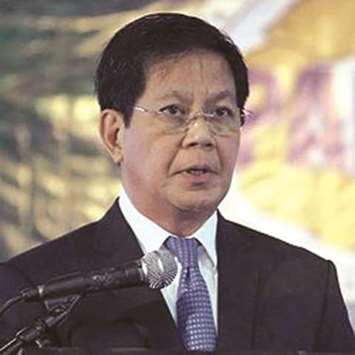Senator Panfilo Lacson has called on lawmakers to study the possible lifting of value added tax exemptions granted to various industries instead of suspending the imposition of excise tax on fuel.
The senator said lawmakers should thoroughly study the proposal as he called for calm amid the growing clamour to stop the collection of tax fuel under the Tax Reform for Acceleration and Inclusion (Train) law.
“The problem with it (suspension of excise tax) is revenue erosion, where will you get it, how can you compensate?” Lacson said in a radio interview.
The Senate Committee on Public Services has urged the Finance department to suspend the imposition of excise taxes on fuel, amid the rising prices of basic commodities.
“We are requesting the Department of Finance (DoF) and other government agencies to seriously study the suspension of excise tax on fuel because of the relentless increase in the prices of oil products,” Sen. Grace Poe said in her closing statement after the hearing on the effects of the Train law.
Several lawmakers also made similar calls, saying the government should act immediately and not wait for the prices to increase further.
“It is easy to call for the suspension of excise tax on fuel. Not only easy but also popular, but where will you get lost revenues?” Lacson pointed out.
Instead of suspending the imposition of excise tax on fuel, he said lawmakers should consider lifting the VAT exemptions granted by the government to various industries.
Lacson explained that the Philippines is the only country in Southeast Asia that has the most number of tax exemptions.
The senator noted that the Philippines currently has about 143 lines of exemption on economic zone, power, housing, co-operatives and other industries which is more than the combined VAT exemptions granted by countries in Southeast Asia.
He added that the proposal to lift some VAT exemptions should have been included in the Package 1 of the tax reform law but some members of the Senate blocked the proposal. Lacson however declined to identify the senators.
“Now because of what is happening we need to discuss the issue again and I am willing to file a bill that would remove some VAT exemptions,” he said.
The ways and means panel of the House of Representatives is not inclined to back calls to stop the excise taxes on fuel.
Rep. Dakila Cua, chairman of the House Committee on Ways and Means, said data from the Department of Finance showed that only 0.4 of the 4.5% inflation rate can be attributed to the Train law.
“We asked the Finance department about that last week, and we were told that only 0.4 of the 4.5% of the inflation is caused by Train. That’s why we want to find out what is causing the price increases. If indeed that the Train only accounts 0.4 of the 4.5%, suspending the implementation of the additional excise taxes under the Train law won’t make a dent,” Cua said in a radio interview.
The Train law, which took effect on January 1, increased excise taxes by P3 per litre on kerosene, P2.50 per litre of diesel and bunker fuel oil, and P1 per litre for liquefied petroleum gas.
“We are open to suspending excise taxes on fuel, but we do not want to do it haphazardly because doing so could also put the public at risk,” Cua said.
He however admitted that concerned government agencies are doing a bad job at cushioning the impact of the Train law.
Cua was referring to the P48bn subsidy for poor families. Under the Social Benefits Programme scheme, qualified beneficiaries will be provided a Social Benefit Card and fuel vouchers to qualified transport franchise holders.
“We in Congress are also getting impatient with the delayed flow of aid. The DSWD and the DOTr (for fare hike subsidies) should step up,” Cua added.
So far, only 2mn out of the 10mn target beneficiaries of the unconditional cash transfer programme have received their dues.

Panfilo Lacson has sought an end to tax exemption for firms instead of suspending the imposition of excise tax on fuel.
